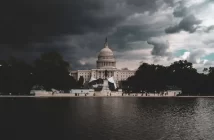by Daniel Johnson
September 25, 2024
According to Karlos Hill, the regents professor of African and African American Studies in the University of Oklahoma’s Clara Luper Department, racism has been normalized by political leaders, both inside and outside of Oklahoma.
After a group of six white students at Oklahoma’s Tishomingo High School spelled out the n-word at a school spirit event, Tishomingo Public Schools, the district that oversees the high school, elected to cancel all homecoming activities after the students responsible received death threats and an image of the students went viral.
According to The Oklahoman, some experts, including Oklahoma State Sen. Mary Boren, said the incident reflects a need for education, dialogue, and DEI programs.
We unequivocally condemn the act displayed by the students in Tishomingo. Racial slurs have no place here and should be met with criticism and penalties. Proper education about the black history of this country is important to combat hateful rhetoric. https://t.co/2136g8ntWv
— Oklahoma State NAACP (@NaacpOklahoma) September 20, 2024
Brandon Moreland, the Tishomingo Public Schools superintendent, issued a statement declaring that racism and discrimination have no place at the school.
“Racism and discrimination, in any form, will never be tolerated or accepted on our campus and is not reflective of the values of our students, school, or community,” Moreland said in the statement.
According to Karlos Hill, the regents professor of African and African American Studies in the University of Oklahoma’s Clara Luper Department, racism has been normalized by political leaders, both inside and outside of Oklahoma.
“People feel free, or more free than they ever have in recent memory, to do and to say things that are racist. That’s really disturbing and scary,” Hill told The Oklahoman.
Hill continued, saying that racism is a national problem, not a local one. “Racism and bigotry are part of our culture. It’s a part of our politics. We would wish it were not, but it just is,” Hill said. “It’s not so much about Tishomingo. It’s not so much about Oklahoma. It’s really about our American culture and our American political culture, and the ways in which social media, the internet, television, all of those things have created the kind of culture that we have where blatant racial imagery is increasing.”
In a press release, Sen. Mary Boren linked the racist incident at Tishomingo High School to the Diversity, Equity, and Inclusion bans instituted at the state level and cited Moreland’s letter describing the students’ actions.
According to the press release, the incident involved “a small number of high school students who made a deplorable decision by displaying a disrespectful and very inappropriate racial slur while on campus.”
Sen. Boren, a Democrat, said in her statement that the actions of the radical right have created a climate ripe for racial hostility.
“This is clearly unacceptable in every way, and yet six young men felt safe and comfortable to carry out their ‘extremely poor decision.’ These kinds of behaviors expose school districts to lawsuits for failing to keep the school free of racial hostility that disrupts the learning of students.” Sen Boren wrote. “Diversity, Equity, and Inclusion (DEI) programs are designed to help students to consider the perspectives of people who are impacted by their decisions. DEI is simply good manners for work and school and is aimed at teaching Oklahomans how to treat one another with dignity and respect –- lessons we all need to learn and relearn. Especially since so many of us claim to live by the Golden Rule: Treat Others the Way You Want to Be Treated.”
Boren continued, “It is impossible to know how others would like to be treated unless you learn how to set aside your own limited experience and bias to consider their view. Unfortunately, the radical right has banned DEI in Oklahoma schools and has removed a helpful way to teach important lessons about race relations in America.”
Hill seemed to agree with the latter portion of Sen. Boren’s statement as he told The Oklahoman, “You can’t address something you can’t talk about. You can’t address something that you’re in denial of. Rural America isn’t the only place where slavery existed,” Hill said. “It isn’t the only place where lynchings occurred. Our racist history occurred everywhere in this country.”
Bernard Allen-Bey, the state conference of branches president for the Oklahoma NAACP, told KXII that the incident reflects poorly on the school’s leadership.
“If you got a school district down there or a school down there that is teaching these boys in a way that would cause them to think that this behavior is OK, that’s a problem,” Allen-Bey said.
Allen-Bey continued, “I don’t know these boys, so I don’t know if there is some deep-seated hatred for Black people in them or if they just thought this was a joke. But I do think that something has to be done.”
Allen-Bey also tied the incident to the inability of teachers to talk about race and racism in the classroom. “If you’re not making a conscious effort to properly educate those students about the history of America…then you have these kind of insensitive incidents. So it does concern me.”
RELATED CONTENT: Calls Grow To Remove Oklahoma Gov. Kevin Stitt From Tulsa Race Massacre Commission After He Signs Critical Race Theory Bill



